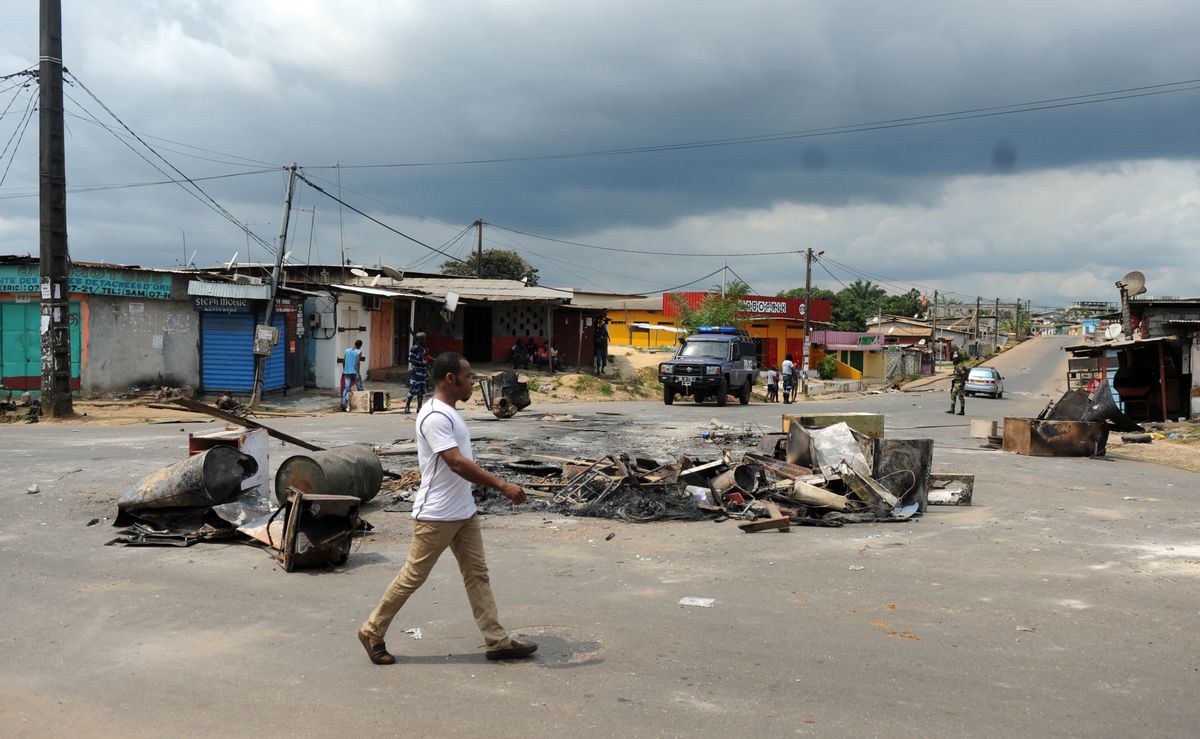The fragility of one of the world’s longest-lasting political dynasties was exposed when the military attempted a coup in Gabon in January.
The coup, orchestrated by junior members of Gabon’s military, failed to unseat Ali Bongo Ondimba, whose family has run the central African country since the late 1960s. And Gabon’s next presidential election isn’t until the summer of 2023.
Bongo’s time in office may run out sooner.
The 60-year-old strongman has been effectively unable to rule since suffering an apparent stroke in October 2018, during Saudi Arabia’s Future Investment Initiative — often called “Davos in the desert.”
His evident frailty in recent TV appearances, coupled with the failed coup and lack of an obvious heir, has created a strong national sentiment that Gabon’s five-decade Bongo dynasty is on its last legs.
One of France’s last neocolonial outposts in Africa
Political upheaval is rare in Gabon, a diminutive central African nation about the size of the state of Colorado, with a population of 2 million and a lucrative oil industry.
Except for a short-lived military coup in 1964, Gabon has been regarded as a bastion of stability in troubled central Africa, where my research is focused. Oil wealth and the Bongo dynasty’s French backing has contributed to Gabon’s security, and in recent years Bongo has used this stability to turn Gabon into a key U.S. ally in the region.
But stability is not the same as democracy.
Since winning independence from France, in 1960, Gabon has had just three presidents. The first was Léon M’ba, who ruled from independence until 1967. The current president’s father — Omar Bongo Ondimba — assumed power after M'ba died.
Omar Bongo went on to rule Gabon with an iron fist for 42 years. To stay in power, he oversaw changes that ensured that the country’s nascent electoral system never became independent, free or fair.
During his rule, the elder Bongo helped to keep French political influence and military might alive in Africa by signing several mutual defense treaties with France. His policies benefited the “Françafrique” — a now-disparaged term describing France’s “special” relationship with its former colonies on the continent, which has included supporting dictators who protect its economic interests.
Omar Bongo ensured that Gabon remained a “neocolonial enclave,” as anthropologist Michael Reed wrote in 1987 in the Journal of Modern African Studies.
“Gabon’s very identity is inseparable from France,” Reed argued, “and the latter’s continued claim to ‘major power’ status, in which Africa is crucial, requires Gabon’s assistance.”
President Ali Bongo Ondimba, who assumed power after his father died in 2009 — in yet another election marred by irregularities — inherited his father’s fealty to France.
Gabon still routinely aligns itself with French interests in Africa. During Libya’s 2011 political upheaval, for example, Ali Bongo broke with the African Union and called for the embattled President Muammar Gaddafi to step down. France and other Western powers sought to dislodge the authoritarian Gaddafi, while African nations supported Gaddafi, promoting “African solutions to African problems.”
A stable non-democracy
The rise of Ali Bongo — who was minister of defense during the latter part of his father’s reign — was contentious even within his own Gabonese Democratic Party.
Bongo was forcefully challenged by a senior former party member in the 2016 presidential election, Jean Ping. Boosted by the failure of Bongo’s reform agenda to transform Gabon into an emerging economy, Ping almost convinced the Gabonese people that the Bongo dynasty had to go.
In the end, Bongo beat Ping, a former head of the African Union Commission, by fewer than 6,000 votes, with 50.66 percent of the vote. Ping, along with many local and foreign observers, considers the results of that race fraudulent.
The 2016 presidential election was damaging for the Bongo dynasty. It was the first time that the opposition to the Bongo family coalesced around a single, credible candidacy.
Ever since then, once peaceful Gabon has experienced political crises. Ping’s party boycotted last year’s municipal elections, and his half of the electorate considers Bongo an illegitimate president.
Rich and poor
Gabon has also been in an economic and fiscal crisis since 2014.
Between 2014 and 2016, government revenues decreased substantially due to the fall of global oil prices. Last year, the International Monetary Fund agreed to bail out Gabon’s government in exchange for structural reforms, including a three-year hiring freeze in the public sector.
Inequality is also very high in Gabon. Historically, its oil wealth has not financially benefited most of its people, who remain quite poor.
Gabon places 110 out of 189 countries on the United Nations Human Development Index, which assesses longevity, education levels, poverty, social equality, maternal death and other measures of well-being. That is higher than immediate neighbors like Cameroon, Congo and Equatorial Guinea, but lower than expected for a middle-income country whose government runs on oil money.
The African island of Mauritius, for instance, whose gross domestic product is similar to Gabon’s — which was US$15 billion in 2017 — fares far better. It ranks 65th worldwide on the UN’s human development index.
A future yet to be written
Surveys show that 87 percent of Gabonese feel that the country is headed in the wrong direction. They blame Ali Bongo for that, though 71 percent reject any attempt to install a military dictatorship.
Despite attempts by the Gabonese Democratic Party to reassure the public that Bongo’s health is improving, it is unclear if he will ever recover enough to again lead Gabon.
For now, an amendment of the constitution by Gabon’s constitutional court in November 2018 has ensured that the president remains — at least nominally — in charge while recovering from the stroke.
When Bongo dies or is rendered incapacitated — a scenario that, in my assessment, is already well underway — the Bongo dynasty will end.
Gyldas A. Ofoulhast-Othamot, Adjunct professor, Political Science and International Studies, University of Tampa
This article is republished from The Conversation under a Creative Commons license.



Shares